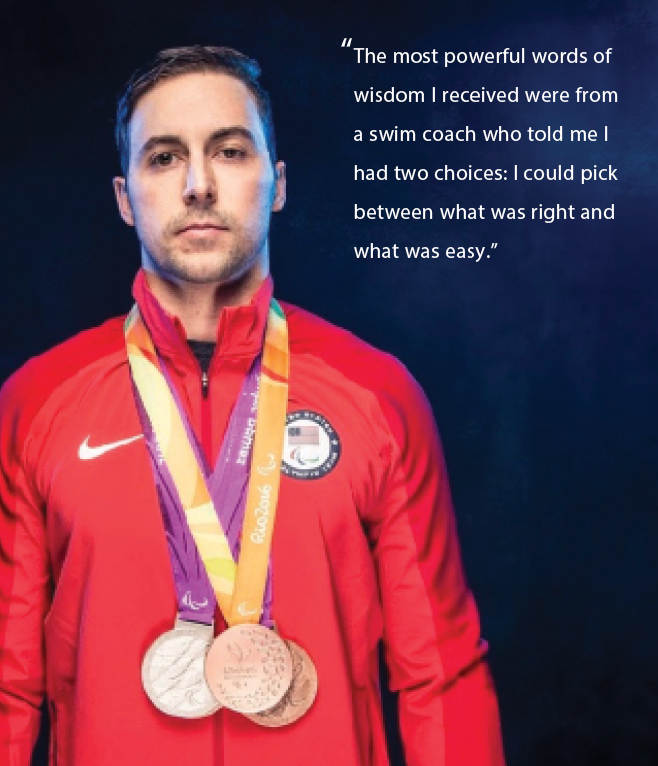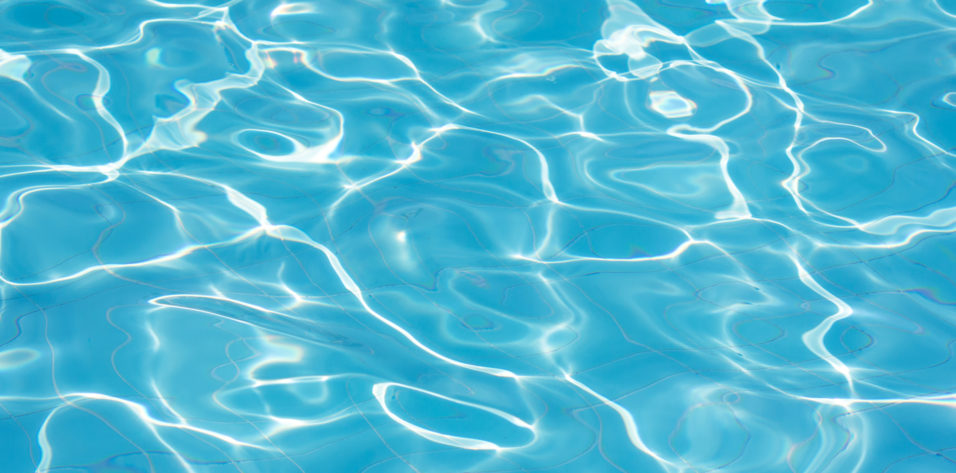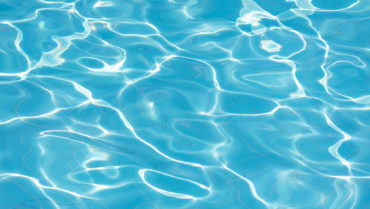Richie Kahn, MPH (RK): Tucker, first and foremost, thanks for taking the time to share a bit about your story. Let’s start with the vision loss and move on to the Paralympic glory.
Tucker Dupree (TD): Thanks for the opportunity. When I was 17, I was diagnosed with Leber hereditary optic neuropathy (LHON), an inherited form of vision loss. LHON typically presents when a patient is young (teens or 20s) and progresses over time. In my case, I have lost 70% of my central vision. Prior to my diagnosis, I was an accomplished swimmer. Postdiagnosis, I was fortunate to represent Team USA in the Paralympics in 2008, 2012, and 2016.
The power of community can truly break records. In my corporate career, people have taken a chance on me, and I cannot say it enough: I would not be where I am today without the amazing individuals who have believed in me to truly make a difference.
RK: That’s incredible. As my vision loss has progressed, I’ve become a strangely proficient hiker—go figure. But, I started to lose my vision later in life than you did and while working in ophthalmology of all things. Although I probably should have, I hadn’t thought much about how vision loss actually manifests. Did you have a clear idea before you started losing your eyesight? Was there anything that surprised you?
TD: I was in the same boat. I did not have a family history of vision loss, so when I began to lose my vision, I felt like I was starting from square one. I was fortunate to live in proximity to a blind school and was able to attend orientation and mobility classes. I also saw a low vision specialist and managed to get my hands on the latest and greatest technology of 2006, which included a closed circuit television magnifier, a magnifying glass for my flip phone to T9 text, and a monocular for distance viewing. I learned quickly that, if I was able to master these services, I could fill the void of my vision loss through technology and the power of my network and community.
RK: I appreciate how you never hesitate to connect with other patients if there is a possibility that your ear or insight will add value for them. What would you want a patient who is newly diagnosed with LHON, glaucoma, Stargardt disease, retinitis pigmentosa, or any other sight-stealing disorder to know at the outset?
TD: It is vital to reset expectations. There are many stages of a diagnosis journey. The hardest part for me was giving up my driver’s license. When I first started losing my vision, my daily life did not change too drastically; however, having to surrender my driving independence made everything real. The most powerful words of wisdom I received were from a swim coach who told me I had two choices: I could pick between what was right and what was easy. It was easy to feel depressed. The alternative, what was right, was to leave a legacy. Obviously not everyone who goes through a diagnosis journey is a swimmer, but I am a firm believer that, during challenging times, we must focus on the things we can control. Attitude and mindset form the foundation for managing these hard times, and how we show up is what can help write our legacies, one page at a time.

RK: I know you also stay active coaching with Fitter and Faster Swim Camps. Those kids are lucky to have you in their corner. One last topic I wanted to cover before we wrap up is accessibility tools. I have yet to dive into these myself, but I know they have been super helpful for you.
TD: It is possible to get used to accessibility tools and to find shortcuts to boost their efficiency. I learned quickly that if I didn’t push the services and technology away, I could live a very independent life. I wanted to ensure that I never became a burden on someone else due to my vision loss. Through accessible technology, I am able to live autonomously in the city of Chicago without most people even realizing I am 70% blind.
I firmly believe that Apple is the best in the business of blind accessibility tools. The user experience is smooth, easy to understand, and seamless for the blind community. I am amazed at the new technology that is always coming out, and I try to stay up to date on all of the advances. When I first started to lose my vision in 2006, I was handed a tool belt of technology just to leave the house: a closed circuit television magnifier to read printed items, a magnifying glass to read my flip phone, and a monocular to see far away. Now, with my iPhone and Macbook, I am able to travel the world, work a corporate job at a Fortune 500 company, and continue to show the world that people with disabilities are people first.
RK: We appreciate your sharing, Tucker. Thanks again!




